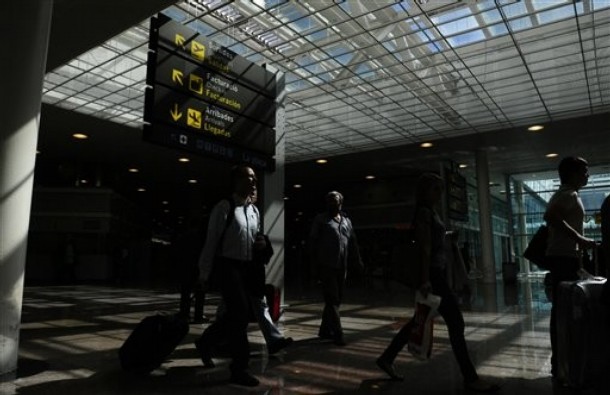
After reviewing the spat of al-Qaeda-linked threats currently percolating in Europe, Mary Habeck thinks the Obama administration has downplayed the threat:
These plots and threats undercut the argument recently made by the current Administration about the size and capabilities of al Qaeda. In June, CIA director Leon Panetta stated that there were fewer than 50-100 al Qaeda in Afghanistan. Michael Leiter, the head of the National Counterterrorism Center, echoed Panetta in a speech to the Aspen Group, adding that there were only an additional 300 al Qaeda members in Pakistan and that the group was weaker than it had ever been since 2001 (although he was quick to say that it was not harmless). Richard Holbrooke at the same time said that al Qaeda had been severely degraded and was under intense pressure. No administration could ever afford to state publicly that al Qaeda is not a threat, but there is hardly any other way to read the clear message from these high-ranking officials.Here's the question for the administration and the intelligence upon which their statements are based: If al Qaeda has been so degraded and so few of the group were left alive in June, how has it been able to regenerate itself enough in just three months to plan and organize an attack in four countries while accumulating 150,000 pounds of explosives for multiple paramilitary attacks in Pakistan?
This is a tricky thing to write about, because it's obviously hard to know what al-Qaeda is planning and whether they'll be able to pull it off until they actually do it.
But let's assume that they're readying "Mumbai-style" attacks using automatic weapons in crowded urban areas. That's obviously a horrific event and it would clearly take a devastating toll in human life, but it's considerably less damaging than a 9/11-style attack, a strike with a weapon of mass destruction, or even the blowing up of a civilian airliner. Would a single such attack - even one coordinated to occur in several cities or countries - "paralyze an entire country" as Habeck asserts? Perhaps for a day or week, but unless these kinds of attacks occurred in relentless waves, I suspect people in those cities would go about their lives and normalcy would return.
The very fact that al-Qaeda has been reportedly "reduced" to planning Mumbai-style attacks, which are literally impossible to defend against and take very little in the way of money, training or equipment to execute, doesn't speak to the group's strength, but its weakness. Weak does not imply "not dangerous" but the kind of danger the group poses appears different in 2010 than it was in 2001. (And again that's assuming that the organization doesn't have something far more lethal up its sleeve, which is, unfortunately, perfectly possible.)
UPDATE: Daniel Drezner had similar thoughts along these lines.
(AP Photo)



